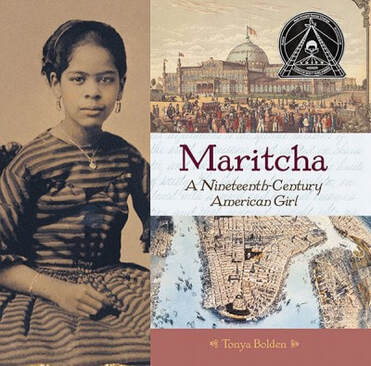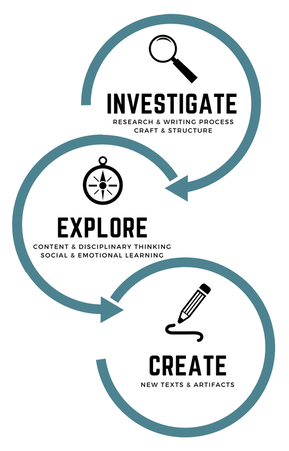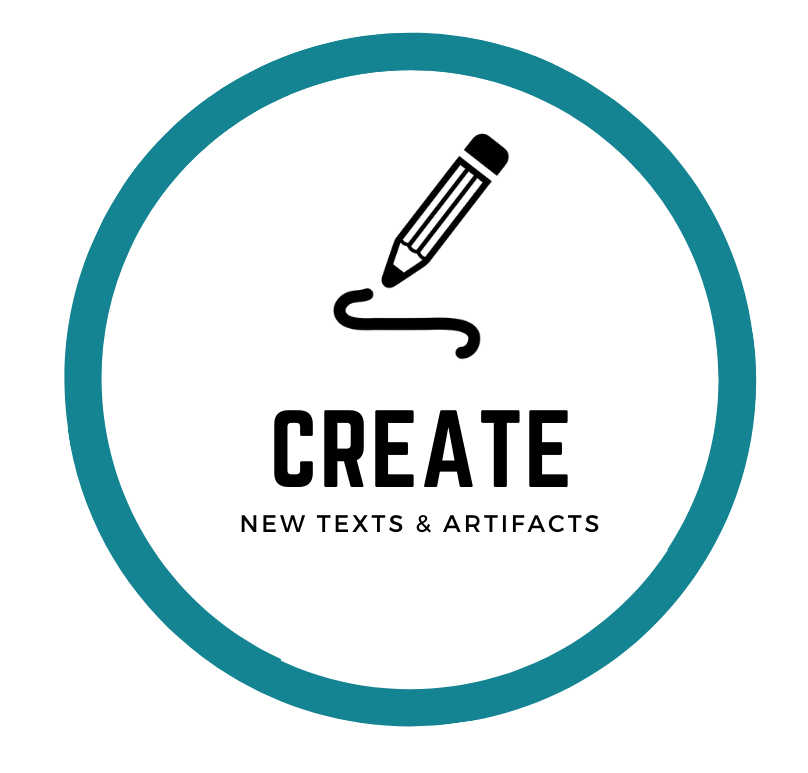By Jennifer Graff and Courtney Shimek on behalf of the Biography Clearinghouse As shared in our initial Biography Clearinghouse post, we are committed to showcasing how biographies can help connect youths with each other and the world. Offering curricular possibilities that are easily adaptable to grade level, time, and other contexts and providing “behind-the-scenes” content from biography creators are central components of our commitment.  In the spirit of returning to school and the desire to amplify the historical achievements of Black people in the U.S., we showcase the story of someone committed to justice and equity her entire life. “A child of New York City’s striving class of Blacks in the mid-1800s" (p.5) whose ideals were to “Aim high! Stand tall! Be strong! -- and do!” (p.5); a girl whose mother was “an ace operator for the Underground Railroad” (p.21); and an educator who wrote, “I never forgot that I had to sue for a privilege which any but a colored girl could have without asking” (p.36). Thus, our first featured biography on the Biography Clearinghouse website is Tonya Bolden’s award-winning Maritcha: A Nineteenth-Century American Girl. Bolden felt compelled to write about Maritcha after coming across her memoir at the Schomburg Center for Research in Black Culture. Bolden’s rich, descriptive language and use of primary and secondary sources illuminate the life and experiences of Maritcha Rémond Lyons and her family in New York City during the latter half of the 19th century. Readers discover what life for Blacks was like in New York City, witness the terror and violence of the Draft Riots in 1863, and experience the fight for education and equal treatment. Bolden’s discussion of her research and writing process in the front and back matter as well as Maritcha’s perseverance, determination, and legacy inspired us to interview Bolden and imagine how we could incorporate this powerful biography into our classrooms. Operating within our Investigate, Explore, and Create model, we designed teaching ideas geared toward literacy and content area learning as well as opportunities for socio-emotional learning and strengthening community connections.
Getting to Know Your Community Leaders
Community networks were central to Maritcha’s story as well as her and her family’s accomplishments. The importance of community networks is still present today. But how often do we have opportunities to delve deeper into the community networks that help us survive, if not thrive?
By investigating biographers’ research and writing processes and connecting people and historical events to our modern lives, we hope to motivate change in how readers engage with biographies, each other, and the larger world. To see more classroom possibilities and helpful resources connected to Marticha: A Nineteenth Century American Girl, visit the Biography Clearinghouse. Additionally, we’d love to hear how the interview and these ideas inspired you. Email us at [email protected] with your connections, creations, questions, or comment below if you’re reading this on Twitter or Facebook. Jennifer M. Graff is an associate professor at the University of Georgia, the current past-president of CLA, and a former committee member of NCTE’s Orbis Pictus Award for Outstanding Nonfiction for Children. Courtney Shimek is an assistant professor at West Virginia University and has been a member of CLA since 2015. Comments are closed.
|
Authors:
|
CLA
About CLA
|
Journal of Children's Literature
Write for JCL
|
ResourcesCLA-sponsored NCTE Position Statements
|
Members-Only Content
CLA Video Library
|
© COPYRIGHT 2018.
ALL RIGHTS RESERVED |



 RSS Feed
RSS Feed